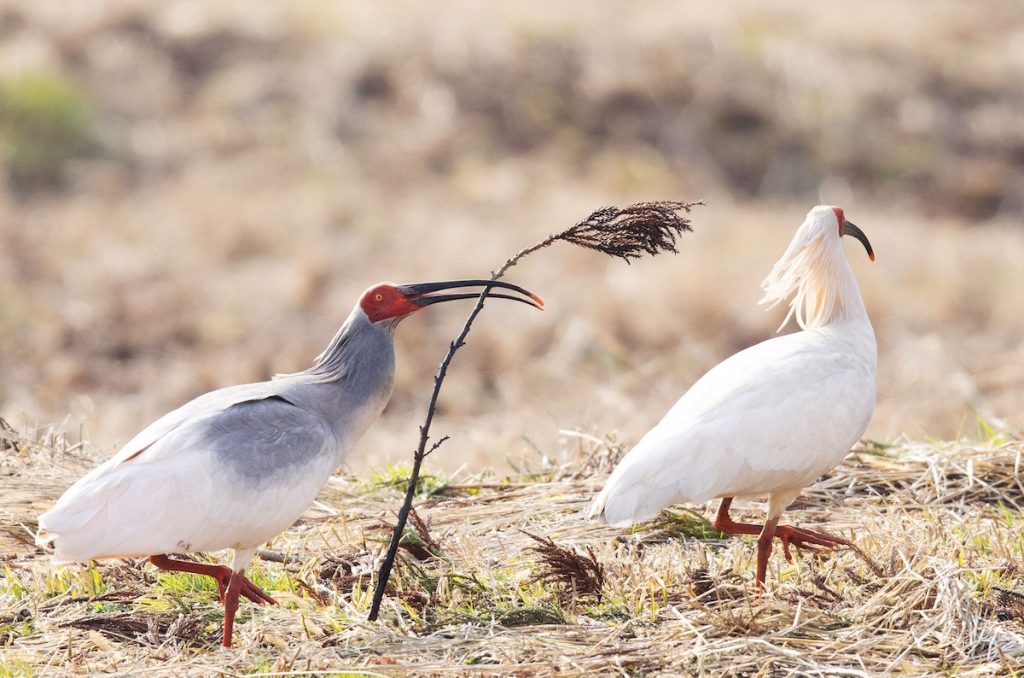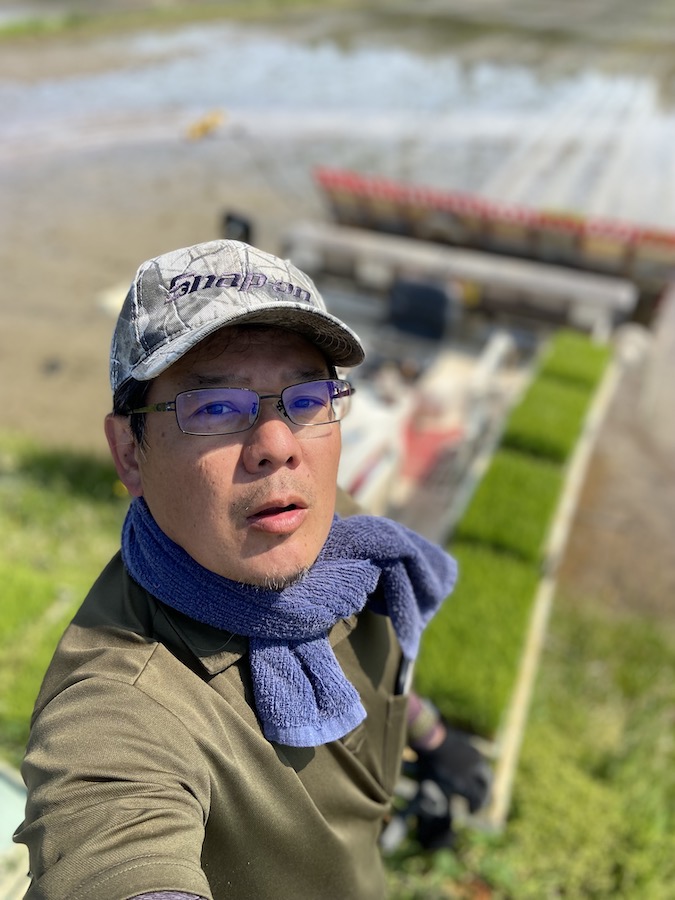
A crested ibis extends a branch as part of the courtship ritual. (©Fumie Oyama)
Read the full story on Japan 2 Earth - [Sado Wildlife in Focus] The Crested Ibis Mating Season Begins!
The cold winter and snow linger on Sado Island. But the crested ibis have already begun to engage in courtship behavior. The birds can be seen grasping small branches with their beaks to offer to favored mates.
Branches a Sign of Affection
As the crested ibis enters its mating season, its feathers darken. In early February, the ibis is now sporting dark gray feathers colored by a powdery substance excreted from its skin. During this time of year, the birds can be seen presenting potential mates with branches.
The birds generally break off small branches or twigs when perched in trees. Or when on the ground, they pick up fallen leaves to offer to a favored mate. The recipient of this courtship behavior, the female ibis, accepts the twig if interested. Once a couple is formed, they begin to exchange branches with each other frequently.

If the female is not interested, she will refuse the offer of a branch from a male. In the photo above, the female ibis is still young. She has not yet entered the breeding season, and her feathers have not darkened. Despite the male's earnest courtship, he ends up ignored.
Continue reading the full story on Japan 2 Earth to learn more about the mating behavior of the endangered crested ibis.
And find more great articles on the environment and the challenges of achieving the SDGs on our affiliated website Japan 2 Earth (J2E), sparking a transition to a sustainable future.
RELATED:
- Ramsar Recognizes Decades-Long Effort to Protect Endangered Geese
- The Snow Fairy of Hokkaido is Winter's Sweetest Gift
- Protecting the Vulnerable Little Tern is No Simple Matter
(Read the article in Japanese.)
Author: Fumie Oyama
Click here to read more Sado Wildlife in Focus photo essays by photojournalist Fumie Oyama.

Fumie Oyama is a two-time winner of the Japan Newspaper Publishers & Editors Association Award as a photographer for the Sankei Shimbun. After covering the reintroduction of the crested ibis to the wild for 11 years, Oyama left the company in 2020 to move to Sado Island. There, he continues to photograph the ibis and other wildlife while engaging in farming. He currently promotes the charms of Sado Island as a photojournalist. Follow Fumie Oyama on Instagram.







